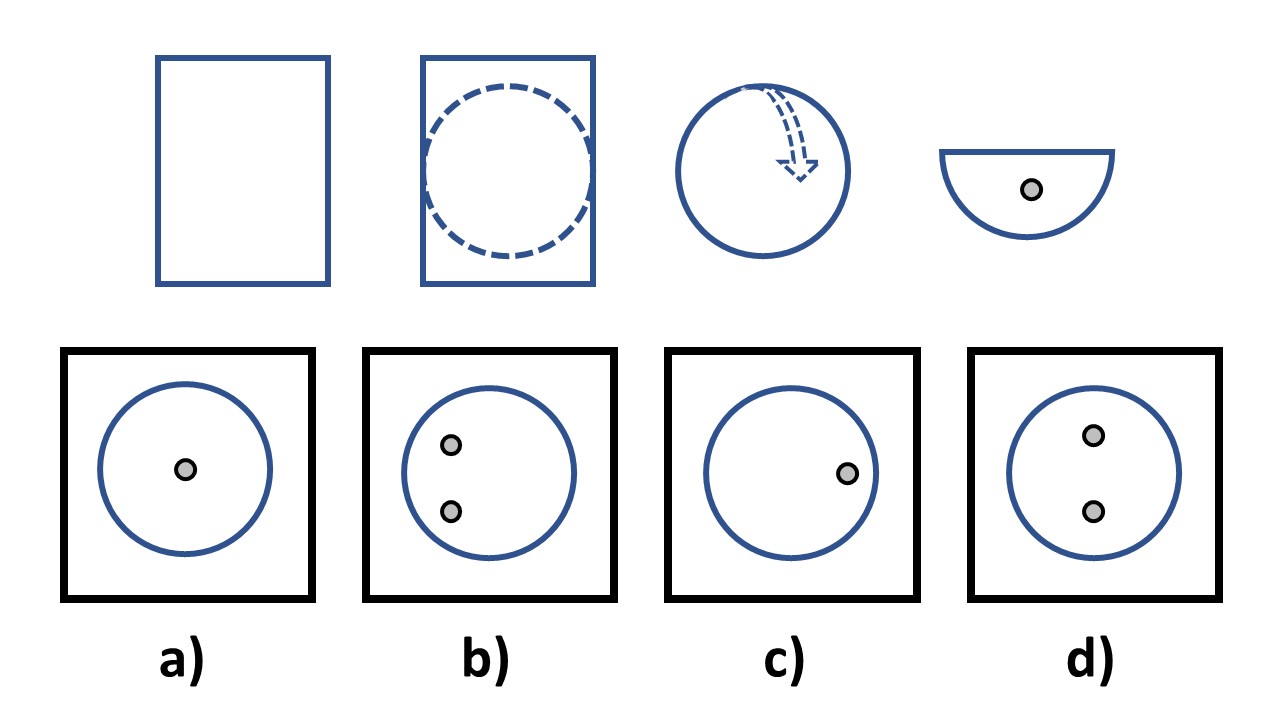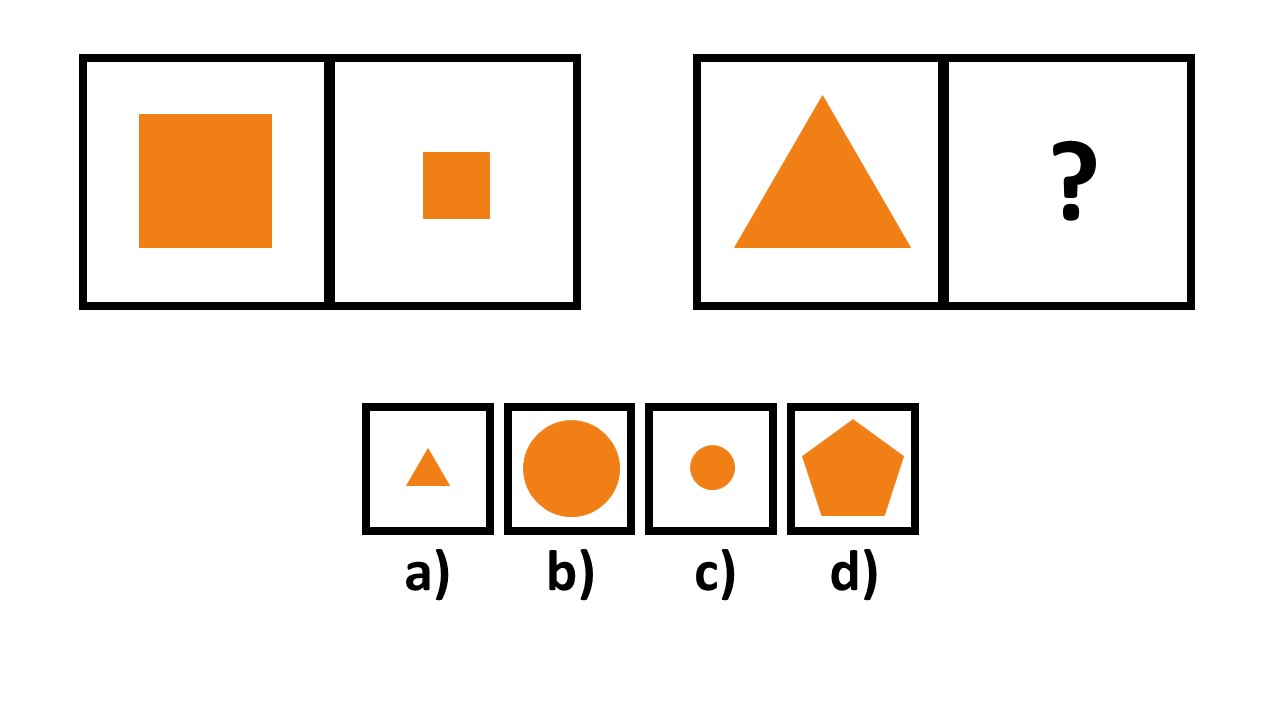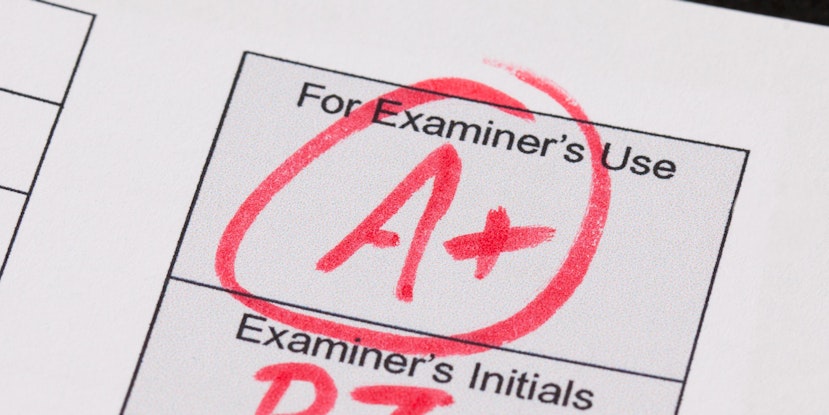How to Pass the CogAT Grade 3 Test in 2026
Updated November 20, 2023
- What Is the CogAT Grade 3rd Test?
- How Is the CoGAT Grade 3 Structured?
empty
empty
empty
- How to Ace the 3rd Grade CogAT Test in 2026
- How to Prepare for Cogat 3rd Grade Test
empty
empty
empty
empty
empty
empty
empty
empty
empty
empty
- Frequently Asked Questions
- Final Thoughts
What Is the CogAT Grade 3rd Test?
The CogAT 3rd grade test is designed to test a child's reasoning and problem-solving abilities in different areas.
CogAT stands for ‘Cognitive Abilities Test’.
This is not a test of knowledge or facts that have been learned at school.
Instead, this CogAT test measures how a 3rd grade child perceives patterns and relationships in the world around them.
This reasoning ability is developed from birth as a result of experiences at home as well as school.
There are a total of 14 levels that are administered to students from Kindergarten through to grade 12.
At 3rd grade, the level 9 test is most often used.
The test is presented in a multiple-choice question format.
It is used to determine cognitive strengths and weaknesses. These can then be compared to the abilities of peers.
The results are used to inform both parents and teachers about any gaps or areas needing focus.
This means future learning can be tailored to individual students. Instruction can then be differentiated to suit each student's learning style.
The results are often used to decide entry onto specialized or gifted and talented learning programs.
Very high scores can show the student is ready for more accelerated learning.
Requirements for entry to gifted programs will differ between school districts. It is best to check what percentile result is needed beforehand.
The CogAT 3rd grade test is also used to predict future academic success. This shows that there is a link between reasoning ability and academic achievement.
The test is administered by both private and public schools throughout the US. It is usually offered twice a year.
The test is most often taken online using a computer. This way, the information can be read to the student through headphones.
Prepare for CogAT 3rd Grade Test with Test Prep Online
How Is the CoGAT Grade 3 Structured?
The CogAT grade 3 test is a timed test of approximately 90 minutes. In the 3rd grade, the test contains 170 questions.
Before each subset of questions, a sample question is provided. This ensures the student is familiar with how to answer the questions.
The questions cover three broad subcategories. These categories are also referred to as batteries.
1. Verbal Reasoning
The verbal section, or battery, covers reasoning with words. It assesses the ability to understand words and make judgments about them.
The 3rd Grade CogAT test at level 9 is the first level that assesses written statements.
This section is more difficult than the 2nd grade CogAT.
Questions in this section will involve:
- Verbal analogies
- Verbal classification
- Sentence completion
1. Complete the sentence by choosing the best word from the options.
Elise quickly closed the stable door and bolted it shut to stop the horse from _______.
a) jumping
b) escaping
c) eating
d) falling
2. Select the best answer from the options below.
'Shoe' is to 'foot' as 'hat' is to ______.
a) scarf
b) hair
c) feet
d) head
2. Non-Verbal Reasoning
The non-verbal battery is generally picture-based.
The questions will include:
- Picture analogies
- Paper folding diagrams
- Figure classification
Follow the paper folding instructions below. Choose the answer option that matches what the paper will look like when it is unfolded.

Which answer option completes the puzzle?

3. Quantitative
This section covers reasoning with numbers. It looks at a student's ability to order numbers and understand sequences and series.
It also contains number analogy questions and puzzles with numbers. Addition and subtraction of quantities will also be necessary.
Questions will include:
- Number analogies
- Puzzles with numbers
- Number series
1. A rule connects each number pair below. Follow the rule and select the correct number to complete the last pair.
8 --> 4
100 --> 50
50 --> ?
a) 100
b) 500
c) 25
d) 4
2. Which number completes this sequence?
88, 84, ?, 76, 72
a) 80
b) 82
c) 78
d) 67
If you want 12-month access to all the practice resources for this test, our partner TestPrep-Online.com offers a Family Membership.
Family Membership gives you access to all the TestPrep-Online resources for the next 12 months. You will also get two separate accounts, which can be very helpful if you have two children preparing for their tests.
Get a Family Membership with 12-month access

How to Ace the 3rd Grade CogAT Test in 2026
Children in 3rd grade are likely to be able to focus on concentrated periods of study.
However, these need to be broken up and varied to maintain their interest.
Study periods should also be balanced against other needs such as exercise, relaxation and sleep.
Have a look at the tips below.
Decide which ones would be suitable for your child and implement them for short periods.
Not all suggestions will suit every child. It is important to use strategies that encourage your child to play to their strengths.
Step 1. Practice Sample CogAT 3rd Grade Tests
Practicing CogAT-style sample tests is essential for preparing your child for the real thing.
This will familiarize them with the format, layout and exactly what to expect on test day.
Practicing in advance can be a real help in increasing their confidence with the test.
Have a look at different types of questions together.
See which ones are causing difficulties. This will give you a good understanding of which areas need additional focused support.
Use practice tests for short periods of time and celebrate their successes. This will prevent them from thinking of it as a chore.
Completing a practice test is a valuable experience to make sure your child is aware of how to tackle the questions.
There are various paid or free sample test options available online.
Step 2. Practice Basic Math Skills
A basic understanding of math is essential for the CogAT test. Try and develop math skills with your child.
Practice the order of operations to make sure your child is familiar with them. Look at these sorts of problems to embed their understanding.
Set some simple addition and subtraction questions and discuss the best way to tackle them.
Play some multiplication games and test each other.
If you get involved and work with your child they will be more likely to engage with learning.
Step 3. Practice Reading Comprehension
Encourage your child to read a range of texts of different genres. Talk to them about what they are reading.
Ask questions to test their comprehension skills. This will check their understanding of what they are reading.
Asking questions about the text will encourage them to read actively and consider what might happen next.
Synonym practice is essential for the 3rd grade CogAT. As you read a passage, ask your child if they can think of alternative words that could be used instead.
This will expand their vocabulary, increase their understanding and help them to perform better on test day.
Step 4. Practice Paper Folding
The paper folding questions might be unfamiliar for your child.
Prepare in advance by practicing some real-life examples.
These questions generally involve folding paper and punching holes in it. The question will ask what the unfolded paper will look like.
Practicing these in advance will help your child visualize the paper folding diagrams and they will understand how they work.
Take a piece of paper, fold it in half and punch some holes in it. Ask them to imagine what the paper will look like when it is unfolded.
Getting them to draw the image will be helpful in solidifying this concept that might be new to them.
Step 5. Have a Healthy Balance
Having a healthy, balanced lifestyle is important. It will get your child in the best condition to learn and focus.
Make sure your child is getting enough good-quality sleep and relaxation periods throughout the day.
Provide nutritionally balanced meals and snacks every day. Aim to include a range of fruits and vegetables in their diet.
Try to avoid high sugary treats. These can often boost energy in the short term but then lead to a crash.
Opting for fruit and nuts instead will help your child remain focused and attentive for longer periods.
Remember to take time out for exercise and physical activities too.
Step 6. Make Learning Fun
There's no need to create a strict timetable to prepare for the CogAT test.
Short study periods when your child is in the right frame of mind are enough.
This avoids putting too much pressure on your child. They need to see learning as fun and enjoyable.
Spend quality time together playing word and number games. This can help develop reasoning abilities.
Encourage them to spot patterns and play simple sequencing exercises. Have fun and use lots of encouragement and praise.
Step 7. Use Mindfulness Exercises
Tests can be stressful for some children. Set aside some time for mindfulness exercises.
Some examples include mindful breathing and simple awareness exercises. These can be found online and practiced together.
This will benefit children by helping them to relax, maintain concentration and focus for longer periods.
Feeling calm on test day can help your child's confidence.
They are more likely to perform better and answer questions without feeling pressured.
Practice CogAT 3rd Grade Test with Test Prep Online
How to Prepare for Cogat 3rd Grade Test
To help your child prepare for the CogAT (Cognitive Abilities Test) for 3rd grade, here are some tips:
Familiarize yourself and your child with the test
Understand the sections and question types of the CogAT for 3rd grade.
It consists of three sections: Verbal, Quantitative and Non-Verbal.
Each section assesses different cognitive abilities.
Practice sample questions
Look for CogAT practice materials specifically designed for 3rd grade.
Practice with sample questions to help your child become familiar with the test format and types of questions they may encounter.
Focus on reasoning skills
The CogAT assesses cognitive abilities such as reasoning, problem-solving and critical thinking.
Engage your child in activities that promote these skills, such as puzzles, riddles, logic games and brain teasers.
Enhance verbal skills
Help your child improve their verbal abilities by encouraging reading, vocabulary development and verbal communication.
Engage in conversations, ask open-ended questions and encourage them to express their thoughts and ideas verbally.
Strengthen math skills
Practice key math concepts, including arithmetic operations, number patterns, measurement and basic geometry.
Introduce your child to word problems and mathematical reasoning exercises to enhance their quantitative reasoning abilities.
Develop spatial awareness
Engage your child in activities that develop spatial awareness and visual-spatial skills.
These can include puzzles, building with blocks, identifying shapes and patterns and mentally manipulating objects in space.
Time management practice
The CogAT grade 3 is a timed test, so help your child practice managing their time effectively.
Teach them to read instructions carefully, pace themselves and allocate time for each question or section.
Encourage critical thinking
Foster critical thinking skills by asking your child to analyze information, draw conclusions, make predictions and solve problems.
Engage in discussions that require them to provide reasoning and evidence to support their answers.
Communicate with teachers
Talk to your child's teacher to understand the specific areas assessed by the CogAT and any recommended resources for preparation.
They can provide guidance and support tailored to your child's needs.
Create a positive and supportive environment
Encourage your child, praise their effort, and maintain a positive attitude towards the test.
Ensure they have a well-balanced routine, sufficient rest and a healthy diet leading up to the test day.
Frequently Asked Questions
You can find CoGAT (Cognitive Abilities Test) practice tests for 3rd grade in various places, including educational bookstores, online retailers, or educational websites. Some popular publishers of CoGAT practice materials include Riverside Publishing and TestPrep-Online. Additionally, some school districts and educators may provide access to practice tests to help students prepare for the CoGAT.
The difficulty of the CoGAT 3rd-grade test can vary from student to student. It is designed to assess a wide range of cognitive abilities, including reasoning, problem-solving, and verbal and quantitative abilities. Some students may find it challenging, while others may find it manageable, depending on their individual strengths and weaknesses.
The purpose of the CoGAT 3rd grade test is to assess a student's cognitive abilities and to provide educators and parents with insights into a child's learning style and academic potential. It helps identify students' strengths and areas that may need further attention. The results can be used for educational placement, gifted program identification, and instructional planning.
A "good" score on the 3rd grade CoGAT test can vary depending on the specific school district or educational program's criteria. Generally, a good score is one that reflects a student's true abilities and is sufficient for their educational goals. It's essential to discuss score interpretations with your child's school or district for a better understanding.
The CoGAT is not an IQ test in the traditional sense. While it measures cognitive abilities, it does not provide a single numerical score that represents a child's overall intelligence. Instead, it assesses various cognitive domains, such as verbal, quantitative, and non-verbal reasoning. An IQ test typically provides a single score that represents an individual's general intellectual ability, whereas the CoGAT provides a profile of cognitive strengths and weaknesses.
Final Thoughts
By the time children reach the 3rd grade, tests in school can start to feel demanding.
However, you can ease this strain by helping them prepare in advance.
Remember that the results of the CogAT test are not the only measurement of your child's abilities.
The CogAT test is specific to cognitive reasoning and this can be impacted by a range of factors.
Remind your child that the CogAT test isn't an assessment of the knowledge they have gained and it isn’t an IQ test.
Encourage them to see it as a fun experience that they might even enjoy.
Practicing sample questions beforehand will help to reduce any stress they might be experiencing.
Try and follow the tips provided in this article and don't place any pressure on your child to achieve.
This will make sure they get the best out of their CogAT test opportunity.



